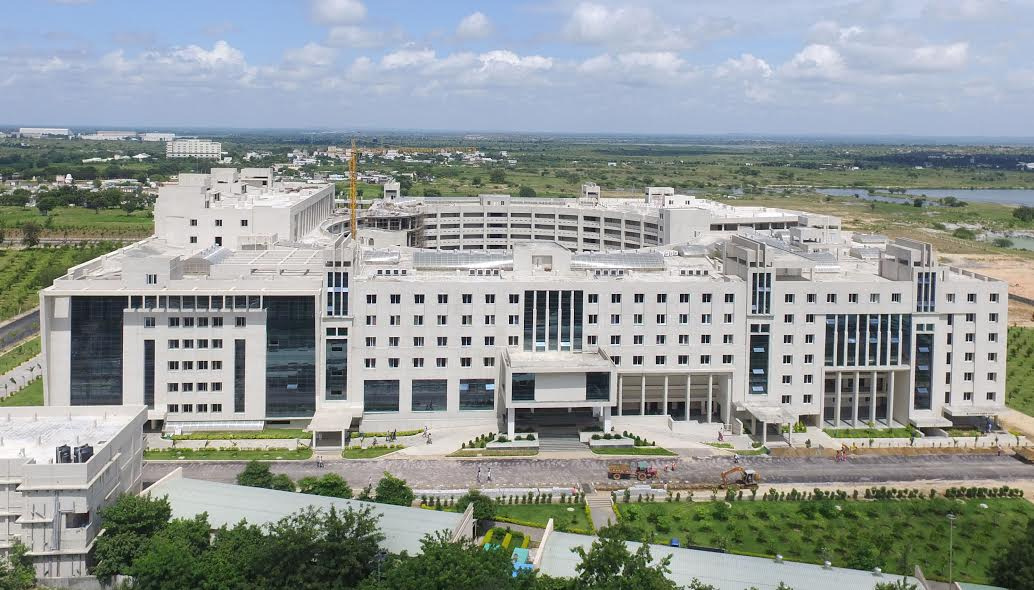About GITAM Hyderabad Business School
Gandhi Institute of Technology and Management, popularly known as GITAM was founded in 1980 by Dr. M.V.V.S. Murthi, Former Member of Parliament and popular philanthropist., Along with a group of eminent intellectuals and industrialists of Andhra Pradesh. Their mission was to set up a world-class technology and management institution in Visakhapatnam to impart futuristic and comprehensive professional education of global standards with a high sense of discipline and social relevance in a calm and competitive environment. GITAM Hyderabad Business School (GITAM HBS), a constituent of GITAM (Deemed to be University), Hyderabad, is an institution of quality management education, research, executive training, and consultancy.
The school was awarded ASSOCHAM national excellence award 2016 under the category of best b-school for promoting research and Silicon India’s “What if not IIMs B-School Survey 2016”:HBS is at the 16th Position at the national level in the All India B-School Ranking 2016 and Under Placements, HBS has bagged the 8th Rank.

MBA Courses offered in GITAM
GITAM HBS offers a trimester based two-year full-time MBA programme in management.
ADMISSION CRITERIA
1. Bachelor Degree with 50% aggregate marks approved by GITAM (Deemed to be University) along with High score in any of the following: CAT/XAT/MAT/GMAT/CMAT or High score in GIM Online Test (GOT).
2. Academic Scores – Class X, XII and Bachelors
3. Work experience (if any)
4. The candidates are tested on skills like: The candidates are tested on skills like Communication, Leadership and Business awareness.
5. GD and PI will take place at GITAM campus Hyderabad, but in case there are 10 or more candidates test centres will be in these cities: Vijayawada, Tirupati, Chennai, Bengaluru, Thiruvananthapuram, Kozhikode, Kolkata, Ranchi, Patna, Bhopal, Bhubaneshwar, Raipur, New Delhi, Chandigarh, Mumbai, Pune, Nagpur, Ahmedabad, and Guwahati.
CHOICE BASED CREDITSYSTEM
Choice Based Credit System (CBCS) is introduced with effect from the admitted Batch of 2015-16 based on UGC guidelines in order to promote:
• Student Centred Learning
• Cafeteria approach
• Students to learn courses of their choice
• Students to learn at their own pace
• Inter-disciplinary learning goals/ objectives and outcomes are specified leading to what a student should be able to do at the end of the program.
PROGRAM EDUCATIONAL OBJECTIVES
GITAM MBA will produce graduates who:
1. Are capable, creative, and highly appreciatedprofessionals in industry.
2. Are flexible and adaptable in the workplace, possess the capacity to embrace new opportunities of emerging technologies, and embrace leadership and teamwork opportunities, all affording sustainable management careers.
3. Continue their professional development by obtaining advanced degrees in Management or other professional fields.
4. Act with global, ethical, societal, ecological, and commercial awareness expected of practicing management professionals.
PROGRAM OUTCOMES
Our program will yield graduates who have attained:
1. an ability to apply knowledge of management skills:
2. an ability to design and conduct data analysis and interpret data;
3. an ability to function in multi-disciplinary teams;
4. an ability to identify, formulate, and solve management problems;
5. an understanding of professional and ethical responsibility;
6. an ability to communicate effectively;
7. the comprehensive education necessary to understand the impact of management solutions in a global and societal context;
8. a recognition of the need for, and an ability to engage in life-long learning;
9. a knowledge of contemporary issues; and – an ability to use the techniques, skills, and modern tools necessary for management practice.
STRUCTURE OF THE PROGRAM The Program Consists of
i) Foundation Courses (compulsory) which give general exposure to a Student in communication and subject related area.
ii) Core Courses (compulsory)Discipline centric electives which are helpful to the discipline, give expanded scope of the subject .
iii) Open electives – which are of general nature and unrelated to the discipline to expose the student in areas such as general knowledge, personality development, economy, civil society, governance etc. Each course is assigned a certain number of credits depending upon the number of contact hours (lectures & tutorials) per week.
Stay informed, Stay ahead and Stay inspired with EduVani

